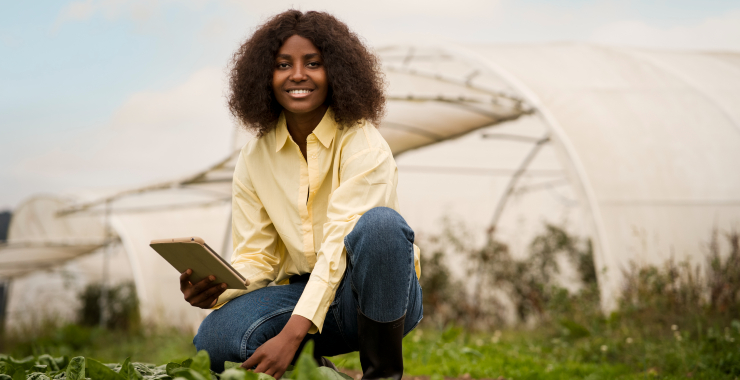Food security is a critical global concern, particularly as the world l s population is projected to reach 9-7 billion by 2050. Addressing this challenge requires innovative solutions, and smart farming, also known as precision agriculture, is emerging as a key driver of change. This approach utilizes advanced technologies to optimize farming practices, ultimately increasing food production and ensuring sustainable agricultural practices.
Smart farming encompasses a range of technologies, including the Internet of Things (IOT), artificial intelligence (Al), and data analytics. These technologies are revolutionizing agriculture, making it more efficient, sustainable, and productive. Here, we explore how smart farming solutions are reshaping the agriculture industry, with a focus on enhancing food security and sustainability.
Precision agriculture is revolutionizing resource management in agriculture. Through the use of technology such as sensors and drones, farmers can monitor soil conditions, crop health, and weather patterns with unprecedented accuracy. This allows them to apply resources such as water, fertilizers, and pesticides more efficiently, ultimately reducing waste and improving crop yields.
Remote sensing and drone technology are transforming crop monitoring and management practices. Drones equipped with cameras and sensors can capture detailed images of fields, providing farmers with valuable insights into crop health and potential issues such as pest infestations or nutrient deficiencies. This early detection enables farmers to take proactive measures to protect their crops, ultimately enhancing food security.
Data analytics play a crucial role in smart farming, enabling farmers to make informed decisions based on real-time data. By analyzing data on weather patterns, soil health, and crop growth, farmers can optimize their farming practices to maximize yields and minimize environmental impact. This data-driven approach is essential for sustainable agriculture and ensuring food security.
The Internet of Things (IOT) is revolutionizing farm management practices. loT-enabled devices such as sensors and actuators can monitor and control various aspects of farm operations, from irrigation to livestock management. This connectivity enables farmers to remotely manage their farms, improving efficiency and productivity.
Smart farming promotes sustainable agriculture practices by minimizing environmental impact. By using technology to optimize resource use and reduce waste, farmers can protect natural resources and reduce pollution. This sustainable approach is essential for ensuring that agriculture remains viable for future generations.
Consider a small-scale farmer in a developing country who utilizes a smart irrigation system to water her crops. This system is connected to sensors that monitor soil moisture levels, ensuring that crops receive the right amount of water at the right time. As a result, the farmer is able to increase her yield while conserving water, demonstrating the impact of smart farming on enhancing food security and sustainability.
Smart farming solutions are revolutionizing agriculture, offering new opportunities for increased food security and sustainability. By leveraging technology such as IOT, Al, and data analytics, farmers can optimize their operations, improve crop yields, and reduce environmental impact. As the global population continues to grow, smart farming will play a crucial role in ensuring that agriculture remains sustainable and productive.





